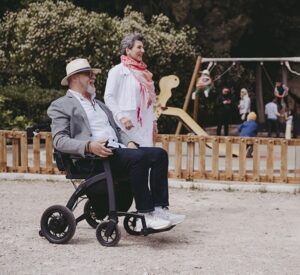
Isolation can be tough for anyone, but it often leads to more than just loneliness for seniors. As social connections fade, older adults may face emotional and physical struggles that push them to make decisions that are less than ideal. These may include poor dietary habits, misuse of medication, or neglect of medical care. Either way, it’s clear that isolation is pushing seniors toward harmful choices that can affect their overall well-being. This is a growing concern, but there are ways to make a difference and help seniors feel supported.
Isolation is pushing seniors toward harmful choices—but why?
Isolation doesn’t just make people feel alone; it changes how they think and act. When seniors lose regular interactions with others, their cognitive health can suffer.
Moreover, with no one to talk to or rely on, everyday tasks can start to feel overwhelming, and motivation to maintain a routine can fade. For some, this might lead to skipping meals because cooking for one feels pointless. For others, it might mean turning to alcohol or other harmful substances to fill the emotional gap.
Research shows that social connections are critical for mental clarity and emotional stability. Without these connections, it’s easy for seniors to fall into patterns that seem harmless at first but can lead to serious consequences down the road. It’s not just the big decisions that become a problem—even small, everyday choices get harder to manage without support.
Types of harmful choices isolated seniors typically make
The longer seniors remain isolated, the more likely they are to fall into dangerous habits.
Substance or medication abuse
As already implied, one of the most common risks is substance or medication abuse. Center for Behavioral Health Statistics and Quality conducted research in 2019, which showed that more than 1.2 million seniors were abusing substances. Feeling cut off from others can drive older adults to misuse alcohol or over-rely on prescription medications as a way to cope with emotional pain or boredom. Unfortunately, this can lead to a downward spiral of physical and mental health problems, especially when there’s no one around to notice the warning signs.
A particularly efficient way to address these harmful behaviors is through dialectical behavior therapy (DBT). The benefits of dialectical behavioral therapy go beyond just managing emotions. This type of therapy helps seniors develop skills to cope with stress, reduce harmful choices, and rebuild their relationships with others. Moreover, DBT focuses on mindfulness and emotional regulation, which can be crucial for seniors struggling with isolation-induced addiction.
Neglecting medical care
Neglecting medical care is another concern. Isolated seniors may delay doctor visits, skip medications, or ignore symptoms of illness because they don’t feel motivated to stay on top of their health. Some might even avoid seeking help altogether, either because they think no one is there to support them or because they fear becoming a burden to others.
How to help seniors feel less alone
Yes, isolation is pushing seniors toward harmful choices, but it’s time we put a stop to it. Helping seniors overcome isolation requires consistent, thoughtful efforts. However, small, meaningful actions can greatly impact their emotional well-being. Below are some effective ways to help seniors feel more connected and supported.
#1 Reach out regularly
A quick call, a video chat, or stopping by for a visit can go a long way. It doesn’t need to be a deep conversation every time—even just sharing updates or asking how their day went helps. As long as you show up consistently, they’ll know they aren’t forgotten.
#2 Encourage hobbies
Finding something enjoyable to do can lift seniors’ spirits. Help them reconnect with old hobbies or try new ones. Hobbies, whatever they are, give them something to focus on and brighten their days with a bit of fun.
#3 Get them involved in the community
Senior centers, fitness classes, or book clubs allow one to meet others and form new friendships. So, encourage them to join some! Even if it’s a little nerve-wracking, going with them to the first event might ease any worries they have about stepping out.
#4 Teach simple tech
Technology doesn’t have to be overwhelming. Teaching seniors to use messaging apps or social media can open a new world of connection. Sure, it might take a few tries to get the hang of it, but once they do, they’ll have an easy way to stay in touch when you can’t be there.
#5 Suggest a support group
Sometimes, it helps to talk to people in the same boat. Support groups allow seniors to connect with others going through similar challenges. These groups can provide real comfort, especially in times of struggle, such as when dealing with grief, illness, or just the ups and downs of aging.
#6 Help them with transportation
Not getting around easily is a big reason seniors feel cut off. Offering to drive them or setting up transportation for them can help make their world feel bigger again.
Take action now
Isolation pushes seniors toward harmful choices, but it doesn’t have to stay that way. We can break the cycle by taking small but meaningful steps to reconnect with the older adults in our lives. And no, these don’t have to be any grand gestures. Showing and letting them know you’re there to help is enough to convince them they aren’t alone. The time to act is now. Together, we can turn isolation into connection, fear into comfort, and harmful choices into healthy habits.








